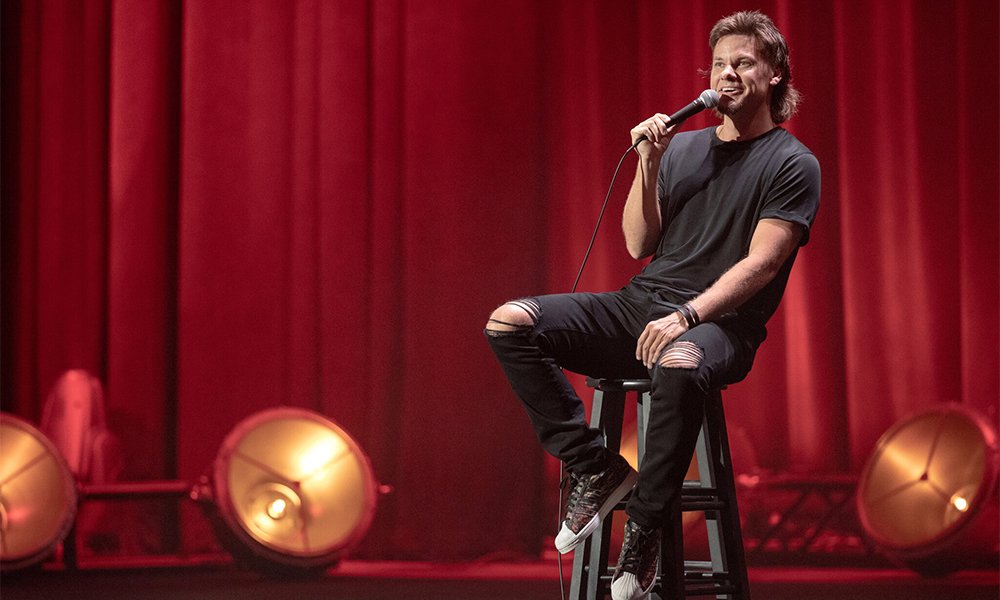Stand-up comedy is a unique art form that
combines storytelling, humor, and often a bit of social commentary. Over the
years, some comedians have created stand-up specials that go beyond just laughs;
they leave a lasting impression. But what really makes a stand-up comedy
special great? From the way comedians connect with audiences to the way they
structure their jokes, there are several elements that make for a memorable
comedy special. Let’s break down these essential ingredients in simple terms.
1. Recognizable Content
One of the first things that makes a comedy special successful is how it feels. Great comedians talk about topics that people recognize and identify with, whether it’s relationships, work stress, family drama, or the daily frustrations of life. By finding humor in shared experiences, comedians make audiences feel like they are not alone. This connection makes the jokes more powerful and creates a bond between the comedian and the audience.
Example: Kevin Hart’s comedy often revolves around his experiences as a father. Many parents find his stories hilarious because they have been through similar situations. The believability makes the jokes more entertaining because the audience can say, “That’s exactly how I felt too!”

2. Unique Perspective
Every comedian has their own view of the world, and a successful comedy show lets that unique perspective shine. Some comedians use their background, culture, or personal experiences to shape their jokes. This originality helps their material stand out because it is something only they can offer.
Example: Ali Wong’s comedy combines humor with her experience as an Asian American woman and mother, adding a twist that resonates with people who share or appreciate her background. A unique point of view not only brings fresh jokes to the table, but also helps the comedian establish a distinctive voice in a crowded field.
3. Timing and Delivery
The delivery is everything in stand-up comedy. It’s not just what you say, but how you say it. A comedian’s tone, facial expressions, body language, and pauses all contribute to the punchline. Good timing can make even a simple joke hilarious. Comedians need to know when to pause, speed up, or slow down to create rhythm and keep the audience on their toes.
Example: Dave Chappelle is known for his impeccable timing. He often lets his jokes simmer, giving the audience time to think before dropping the punchline. This deliberate pacing makes his punchlines more powerful and creates unforgettable moments.
4. Engaging Storytelling
A memorable comedy special often feels like a story that takes the audience on a journey. Instead of random jokes, the comedian strings together stories that flow naturally from one to the next. A solid story captures attention and keeps the audience engaged. Great comedians structure their specials around stories, building suspense.
Example: Comedians like John Mulaney and Mike Birbiglia are known for their storytelling skills. They don’t just tell jokes – they create stories with a beginning, middle and end, so that every laugh feels like part of a larger narrative.

5. Vulnerability and authenticity
Some of the strongest comedy shows come from vulnerability. Comedians who are willing to share their struggles, insecurities or mistakes often build a deep connection with their audience. Authenticity brings warmth and humanity to a comedy special show, showing that comedians go through tough times too. By laughing at their own challenges, they make it easier for audiences to laugh at their own.
Example: In his special show “Nanette,” Hannah Gadsby combines humor with deeply personal stories about trauma and identity. This vulnerability transformed her set into something more than just comedy; it was a raw and moving performance that resonated with audiences around the world.
6. Smart observations and insights
A great comedy show often provides more than just laughs—it makes the audience think. Many comedians use humor to make astute observations about society, relationships, or current events. These insights can make people see things in a new light and are often the moments that stick with them long after the show ends.
Example: Comedians like George Carlin and Ricky Gervais are known for their thought-provoking commentary on society and human behavior. By mixing humor with insight, they invite audiences to think about issues that go beyond the surface.
7. Audience interaction and improvisation
A live audience can add a lot of energy to a comedy show. Some comedians use this to their advantage by interacting with the audience. This interaction keeps things fresh and makes the audience feel like they are part of the show. Improvisation, or reacting to audience reactions, also shows the comedian’s quick wit and wit.
Example: Comedians like Russell Peters are famous for their work with audiences. He often speaks to audience members, especially when they represent different cultures, and adds spontaneous jokes that make each performance unique and more exciting.

8. Catchy catchphrases or slogans
Many great comedy specials feature a catchphrase or recurring line that audiences remember long after the show. A well-timed phrase can gain iconic status, like a signature joke or punchline that fans repeat and share with others. This repetition can turn a funny moment into something that defines the comedian’s style.
Example: Kevin Hart’s “You’re going to learn something today!” or “Here we go” are phrases that fans instantly recognize. These slogans give fans something to remember and repeat, keeping the special alive long after it’s over.
9. End with a strong conclusion
A great comedy special always ends on a high note. The final joke or story should leave a lasting impression and satisfy the audience. Many comedians end with a flashback to a previous joke, bringing things full circle. This technique creates a sense of completion and makes the entire performance feel cohesive.
Example: Jerry Seinfeld is known for ending his specials with references to previous jokes, creating a sense of structure and closure. This strategy gives the audience a memorable last laugh and makes the special feel complete.
10. A thought-provoking message
While humor is the main goal of any comedy special, some comedians use their platform to convey a message. These messages can range from social issues to personal values. By wrapping a message in humor, comedians can discuss serious topics without being didactic. It gives the audience something meaningful to take away and turns laughter into reflection.
Example: Bo Burnham’s “Inside” uses humor to address mental health and the impact of social media. While the special is funny, it also makes audiences reflect on their own lives, leaving a lasting impression that goes beyond comedy.
The Perfect Blend: Making It All Fit Together
All of these elements help make a stand-up comedy special stand out. The best comedians combine credibility, timing, storytelling, and authenticity to create a unique and personal performance. They know how to balance humor and heart, making audiences laugh while also making them think.
Ultimately, a great stand-up comedy show is about more than just telling jokes—it’s about creating an experience. The best comedians use their personality, perspectives, and skills to build a deeper connection with audiences. They remind us that laughter is a powerful way to share human experiences and bring us together in the process. So next time you watch a comedy show, pay attention to these elements. You’ll appreciate the art behind every laugh and maybe even be inspired by the art of stand-up comedy.




No Comment! Be the first one.